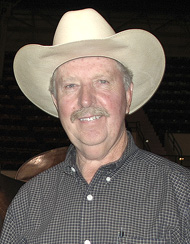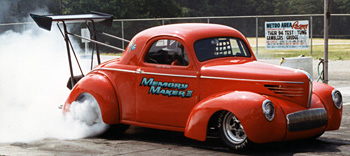 Billy Martin, 69, and Carly Chiarelli, 13, broke records during the 2009 NCHA Summer Spectacular as the oldest and the youngest riders to win an NCHA Triple Crown event.
Billy Martin, 69, and Carly Chiarelli, 13, broke records during the 2009 NCHA Summer Spectacular as the oldest and the youngest riders to win an NCHA Triple Crown event.
Chiarelli, champion of the Classic Challenge Amateur division and a finalist in the Derby Non-Pro, has been showing since she was eight. But Martin has been competing since before there was even a non-pro division of the NCHA Derby.
Martin had never heard of cutting, when he attended the Washington D.C. International Horse Show in the early 1960s. That same year, a group of East Coast horsemen had contributed $5,000 to the Washington International cutting purse. At the time, it was the most ever added to an NCHA purse and the event drew many of the sport’s leading stars, including 1962 NCHA world champion Cutter Bill.
“I was sitting way up in the nosebleed section and I was totally amazed at how quiet those cutting horses were until a cow was in front of them and then they would just explode,” Martin remembered. “I made up my mind right then that was what I wanted to do.”
Martin, who owns the 72 Ranch in Millsap, Texas, was born in Pennsylvania and grew up in the Baltimore area, where his father worked in the shipyards and later owned a small remodeling business. As a boy, Martin spent summers on his grandfather’s dairy farm, where horses rather than tractors performed all the heavy work.
“I just loved the horses and decided that as soon as I could afford it, I would buy one,” he vowed.
Martin went to work right out of high school doing construction work with a pick and shovel, a venture that eventually led to his own businesses in Pennsylvania, Maryland and Virginia. “In the early days, I was my own labor,” he explained. “Then as time went on, I was able to buy equipment.
“The business world is tough and you have to stay on top of things and be able to manage your assets and your liabilities,” he added. “It’s sort of the same thing in the horse world.”
Martin bought his first cutting horse, a “long-haired, pot-bellied” yearling filly named Hollywood Sox, by Hollywood George, out of a pasture in Louisiana for $500. He broke her himself and when it came time to start her on cattle, borrowed some dairy heifers from his grandfather.
“I went to his place with a little side-by-side trailer and packed five heifers into it,” he remembered. “I worked those five heifers for about four months. I had no earthly idea what I was doing, but I read everything that I could find and I talked to everybody that even had the remotest idea about a cutting horse. And I was very fortunate that this mare was super cowy.
“I’d heard about the NCHA Futurity,” he continued. “It was exciting for me to think about going to Texas because I’d never been there. So I decided to enter it on this horse that I’d trained. The only person I knew from Texas was Dub Dale, who I’d met when he came east to judge a cutting. He invited me to stop at his place in Tyler on the way to Fort Worth and he sort of held my hand through all the hurdles.”
Martin and Hollywood Sox placed third in the 1970 NCHA Futurity Non-Pro division, which at the time was a class within the Open division. Doc O’Lena and Shorty Freeman won the Open Futurity that year and Jay Agnew took the Non-Pro title on Rey Lad. Since then, Martin has been a finalist in 99 major limited age events, including seven NCHA Futurities. He has also won eight championship titles, as well as eight reserve championships.
“The NCHA Futurity has been a highlight every year for me,” said Martin. “Back in the early days, I worked all year just to be able to go. Every year, I had one horse to get ready. That was my hobby and my vacation.”
Until he moved to Texas, Martin maintained a farm in Gettysburg, Pennsylvania, where he hosted some of the largest cutting events on the East Coast. He has also supported the Augusta Futurity since its inception and is a longtime director of the event, which he won as a non-pro in 1993 on Shesa Little Acorn and in 1997 on Dual Delight.
Much of the satisfaction derived from his 40-year involvement with cutting comes from Martin’s ability to show competitive horses that he has raised and trained himself. Laredo Montana, his 2009 NCHA Derby Non-Pro champion, is a good example.
“Both of Laredo Montana’s parents were favorites of mine,” said Martin of the gelding’s sire, Light N Lena, and dam, Little Memory Maker. “While I was training him, I could feel both of those horses in him all the way through. Little Memory Maker had a unique way of working and holding a cow. She’d crouch down and get real low. Light N Lena had a big stop and a long sweep and worked pretty flat. Laredo Montana has got the best of those horses.”
Another favorite horse of Martin’s was Shesa Little Acorn, who produced the full sisters Nyoka Pep and Keena Pep, both major money earners for Martin. Nyoka Pep, in turn, has produced Keechi Pep, ridden by Martin’s daughter, Kaitlyn, as non-pro champion of several limited age events.
 Cutting is not the only sport that Martin enjoys. He is a former drag racing world record holder who still holds a racing license. Five years ago, when he was 64, he built a race car from a 1962 Belair and turned 197 miles per hour in 7.01 seconds for the quarter mile.
Cutting is not the only sport that Martin enjoys. He is a former drag racing world record holder who still holds a racing license. Five years ago, when he was 64, he built a race car from a 1962 Belair and turned 197 miles per hour in 7.01 seconds for the quarter mile.
“I was hoping to go 200 miles per hour and I missed it a little bit,” he said. “Although a lot of people have been faster than that, it was the quickest that I’ve ever been in a drag car. I sold the car not long after and it wound up being the fastest car of the year for its class.”
While drag racing and cutting horse competition might seem about as compatable as surfing and dressage, Martin finds similarities.
“Good reflexes and hand-eye coordination make a big difference in both sports,” he maintains. “You’ll lose the race, if you don’t have quick reflexes.”
While he hesitates to offer advice to aspiring cutters or older competitors, and doesn’t advocate any special fitness routine, Martin does recommend persistence. “My suggestion to people, especially those who are getting a little older, is to stay active and persevere,” he said. “If you stay active and physically fit and ride as much as you can, good things will happen.”
Of course, Martin also admits to having a competitive spirit and an industrious nature. “I stay pretty busy and I like it,” he said. “I work better under pressure. It seems like the more things I have to do, the more things I can get done. I can’t stay in the house. It just doesn’t work.”
